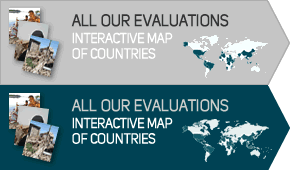Description of project
The IA-RTE provided a snap shot of the current situation including real-time feedback and learning to the UNCT and to the IASC locally. The main objectives will be to learn from the initial phase of the response and to identify lessons that need to be taken forward into programme and secondly, to enable field and headquarters staff to undertake corrective actions in real time as the response evolves. The results of the IA-RTE in the Philippines are envisaged to support the ongoing operational planning of the HCT, which will be the main user of the IA-RTE process and its recommendations.
The IA-RTE would focus in large part on the functioning of the effectiveness and efficiency of the current coordination and management systems; at the same time, there would also be a focus on soliciting feedback from beneficiary populations on results achieved thus far.
The methodology used was the “lite-RTE” approach which includes such methods as field and meeting observation, site visits, key informant interviews, focus group meetings and mini-workshops with the HCT. In addition, surveys to understand the perceptions and needs of the affected population (by age group, gender, origin) were undertaken in at least three different camp situations. Surveys included host population and were designed by the team leader and conducted by the national consultants. A full methodology was developed by the team prior to arrival to the country.
Workshops to validate the findings were carried with the IASC/ Humanitarian Country Team Philippines, with the regional office in Bangkok and the HQ in Geneva and New York

Share this